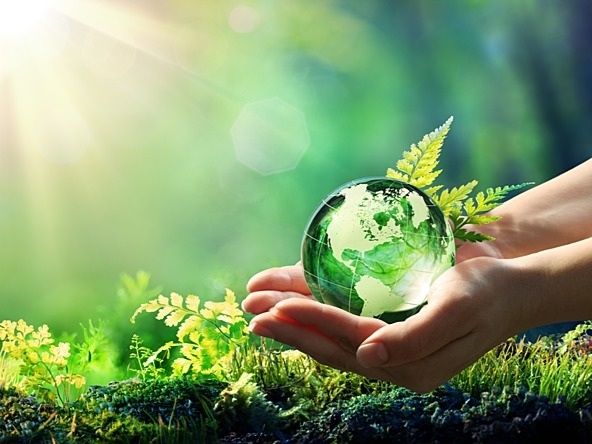grave warning
| Date :17-Jun-2020 |

THAT temperature over India will most likely rise by over 4 degrees by the end of the current century, should be taken as a grave warning not just by India but also by the whole world. For, similar environmental activity may take place all over the world by the time the world enters the next century eighty years from now. The Centre for Climate Change Research (CCR) operating the umbrella of Indian Institute of Tropical Meteorology, Pune, Ministry of Environmental Science, thus, has done well to issue this advance warning to the country, leaving it to the Government and the people to ponder over the seriousness of the challenge and act.
Actually and thankfully, the recent lock-down in response to the spread of novel coronavirus has offered the world an excellent blue-print as well on how to deal with environmental degradation due to green-house effect. The peak of Mount Everest that had gone missing from the visual vista of people in Kathmandu, for example, has now begun enchanting them from a distance of 250 kilometers. The summers that used to be so oppressive due to green-house effect in the past few decades all over India became more tolerable this year, thanks to clearer air-quality due to appropriate measure of particulate matter. Such examples, in truly astounding numbers across domains have given us a bright ray of hope that the global community may be able to check the green-house ill-effects.
At least the Indian lock-down experience has this positive message, no matter the economic damage we have had to suffer. Without doubt, we will have to find out ways and means to combat the economic setback all right, but that should not deter us from learning the right positive lessons from the lock-down benefits. If there are some lessons to be learnt on the industrial and economic front, there also are lessons that we must learn on the social front -- to keep vehicular movement to the minimum, to stay indoors to the maximum, to adopt higher standards of sanitation and hygiene, to follow better and cleaner and healthier culinary practices, to maintain proper social distancing that denotes not just physical safety but also better standards of individual dignity.
The lessons to be learnt from our industrial front include better systems of production that save us from wastage of men-money-material, abuse of energy, better use of human virtue, and resort to unethicality. These are only the first lessons that we have already beginning to learn. Subsequent learning from other practical experiences can lead us to much better conduct of all our activities, thus helping us to keep our environment cleaner and clearer. The wise people the world over can sit down to thinking of devising better practices at all levels of activity, collective or individual.
They can create inviolate protocols of carbon emission -- for example -- or human rights, so that the humanity is engaged in activity of virtue rather than vice. This may, thus, be a matter of proper approach to most activities that keep human and non-human life going in a healthy manner. The current crisis and the resultant lock-down have taught us the importance of some of these basic and necessary norms. If all these experiences get converted into formal protocols and regulations and are made integral parts of the blue-print of better environment, the humanity may be able to check the threatened advance of damaged environment.
Of course, these are not easy lessons to learn and follow subsequently. All those will require extra-ordinary efforts to raise the standard of collective conduct of humanity in all situations. But it is also equally true that we still have a good scope available to us to check demonic violations of norms of Nature.